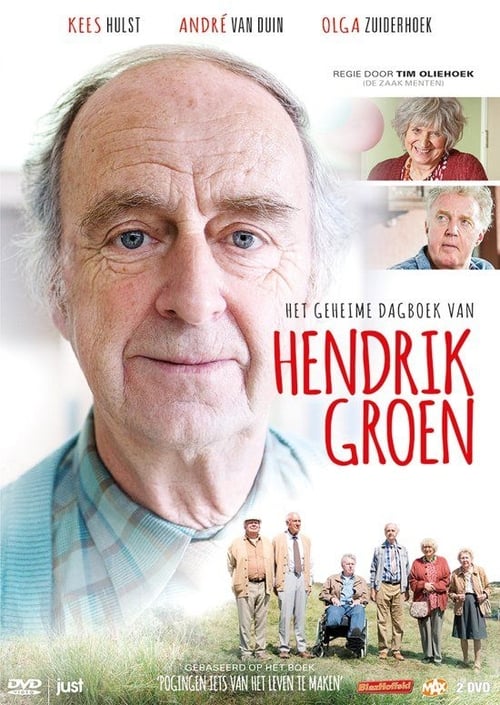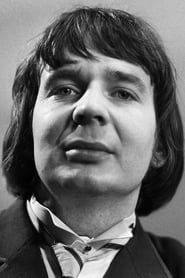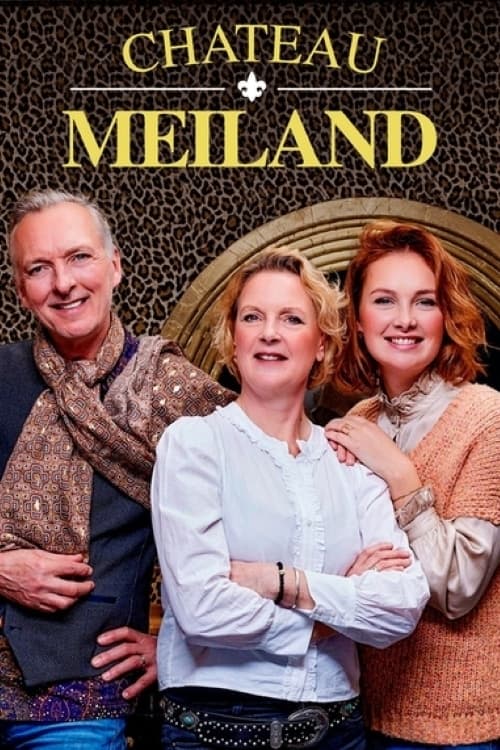
Ask Your Own Question
What is the plot?
Hendrik Groen, an elderly resident of a nursing home in Amsterdam, begins his secret diary on his 83rd birthday. He introduces himself and his life in the home, describing the mundane routines and the various residents, including his friend Evert, who is a bit of a rebel, and the strict head nurse, who he refers to as "the dragon." Hendrik's observations are laced with humor and a touch of melancholy as he reflects on aging and the challenges of life in a care facility.
As the days pass, Hendrik documents the daily activities in the home, including the various personalities of the residents. He becomes particularly close to a new resident, a woman named Astrid, who brings a spark of life into his otherwise monotonous existence. Hendrik is captivated by her spirit and beauty, and he begins to develop feelings for her. He shares his thoughts on love and companionship, revealing his longing for connection despite his age.
Hendrik and Evert decide to form a group called the "Old but Not Dead Club," aiming to bring some excitement and adventure into their lives. They recruit other residents, including the feisty and outspoken resident, who adds a layer of humor to their escapades. The club organizes various activities, such as outings to the city and attempts to break the monotony of their daily lives. Their first major outing is a trip to the beach, where they experience the joy of freedom and the thrill of being outside the confines of the nursing home.
As the club gains momentum, Hendrik and Astrid grow closer, sharing intimate moments and deep conversations. Hendrik's feelings for her intensify, and he grapples with the fear of losing her, as he knows that life in the nursing home can be unpredictable. Their relationship blossoms, and they share a romantic evening, which is both tender and bittersweet, as they both understand the limitations imposed by their age and health.
Conflict arises when the nursing home administration becomes aware of the club's activities. The head nurse, determined to maintain order, imposes restrictions on the residents, leading to tension between the staff and the club members. Hendrik and Evert rally the residents to stand up for their right to enjoy life, leading to a series of humorous and rebellious acts against the rules. They organize a protest, which culminates in a chaotic but spirited demonstration in the common area of the home.
As the story progresses, Hendrik faces personal challenges, including health issues that threaten his independence. He documents his fears and frustrations in his diary, revealing his vulnerability and the emotional toll of aging. Despite these challenges, he remains determined to live life to the fullest, inspired by his love for Astrid and the camaraderie of his friends in the club.
The climax of the story occurs when Hendrik learns that Astrid has been diagnosed with a serious illness. This news devastates him, and he struggles with the reality of potentially losing her. He reflects on their time together and the impact she has had on his life, leading to a poignant exploration of love, loss, and the fragility of life. Hendrik's emotional state becomes increasingly complex as he navigates his feelings of grief and hope.
In the final act, Hendrik decides to take a bold step to show his love for Astrid. He organizes a surprise birthday party for her, inviting all the residents and staff to celebrate her life and spirit. The event is filled with laughter, music, and heartfelt speeches, showcasing the bonds formed within the nursing home. Hendrik's gesture is a testament to his love and the importance of cherishing every moment.
The series concludes with Hendrik reflecting on his journey, the friendships he has forged, and the lessons learned about life and love. He acknowledges the inevitability of aging but emphasizes the importance of living fully, regardless of age. The final scenes capture the essence of hope and resilience, leaving a lasting impression of the beauty found in the connections we make, even in the twilight years of life.
What is the ending?
In the ending of "Het geheime dagboek van Hendrik Groen," Hendrik reflects on his life and the friendships he has formed in the nursing home. The series concludes with a poignant farewell to his friends, particularly to Evert, who has passed away. Hendrik decides to continue writing his diary, cherishing the memories and experiences he has shared with his companions.
As the final scenes unfold, Hendrik is seen sitting in a quiet corner of the nursing home, pen in hand, contemplating the passage of time and the inevitability of loss. He acknowledges the bittersweet nature of life, filled with both joy and sorrow. The series closes with a sense of hope and resilience, as Hendrik resolves to embrace each day, despite the challenges of aging.
Now, let's delve into the ending in a more detailed, chronological narrative.
The final episode opens with a somber atmosphere in the nursing home. The camera pans through the familiar hallways, capturing the daily routines of the residents. Hendrik Groen, portrayed with a mix of humor and gravity, sits at his desk, writing in his diary. His voiceover reflects on the passage of time and the friendships that have become his lifeline.
As the scene shifts, we see Evert, Hendrik's dear friend, who has been struggling with his health. The two share a heartfelt conversation, filled with laughter and nostalgia, reminiscing about their adventures and the mischief they have caused together. Evert's condition, however, is deteriorating, and the weight of this reality hangs heavily in the air.
In the following scenes, the nursing home residents gather for a farewell party organized by Hendrik and his friends. The atmosphere is festive yet tinged with sadness, as they celebrate their lives and the bonds they have formed. Hendrik takes the opportunity to express his gratitude to each of his friends, highlighting their unique contributions to his life. The camera captures the warmth of their interactions, the laughter mingling with tears as they acknowledge the fragility of their existence.
As the party progresses, Evert's absence is felt deeply. Hendrik, with a heavy heart, realizes that this may be one of the last gatherings they will have together. The scene shifts to a quiet moment where Hendrik sits alone, reflecting on the inevitability of loss. He writes in his diary, pouring out his emotions, capturing the essence of friendship and the bittersweet nature of aging.
The climax of the episode arrives when Hendrik receives the news of Evert's passing. The weight of grief envelops him, and he struggles to process the loss of his closest companion. In a poignant scene, Hendrik visits Evert's room, filled with memories of their shared experiences. He sits in silence, allowing the memories to wash over him, feeling both the joy of their friendship and the pain of his absence.
In the final moments of the series, Hendrik is seen once again at his desk, writing. The camera zooms in on his face, revealing a mixture of sorrow and determination. He acknowledges the losses he has faced but resolves to continue living fully, cherishing the memories of his friends. The series concludes with Hendrik's voiceover, expressing a sense of hope and resilience, as he embraces the future, one day at a time.
The fate of the main characters is intertwined with the themes of friendship, loss, and the acceptance of aging. Hendrik, despite the heartache, emerges as a symbol of resilience, choosing to honor his friends' memories by continuing to write and live life to the fullest. Evert's passing serves as a poignant reminder of the fragility of life, while the other residents of the nursing home remain a testament to the enduring bonds formed in the face of adversity. The series closes on a note of reflection, leaving viewers with a sense of both melancholy and hope.
Is there a post-credit scene?
In the 2017 series "Het geheime dagboek van Hendrik Groen," there is no post-credit scene. The show concludes its narrative without any additional scenes after the credits roll. The final moments of the series focus on the emotional resolution of Hendrik's journey, encapsulating his reflections on life, friendship, and the passage of time. The absence of a post-credit scene allows viewers to fully absorb the poignant themes and character developments presented throughout the series, leaving a lasting impression of Hendrik's experiences and the relationships he has built in the care home.
What motivates Hendrik Groen to start writing his diary?
Hendrik Groen, an elderly resident of a nursing home, is motivated to start writing his diary as a means of coping with the monotony and challenges of life in the care facility. He seeks to document his experiences, share his thoughts, and express his frustrations about aging and the limitations imposed by his surroundings. His desire for freedom and adventure drives him to create a record of his life, filled with humor and poignant reflections.
How does Hendrik's relationship with Evert evolve throughout the series?
Hendrik's relationship with Evert, his fellow resident and friend, evolves from a casual companionship to a deep bond of friendship. Initially, Evert is portrayed as a somewhat grumpy and cynical character, but as they embark on various escapades together, their camaraderie strengthens. They share laughter, support each other through personal struggles, and ultimately become a source of joy and resilience for one another, highlighting the importance of friendship in their twilight years.
What role does the 'Old-But-Not-Dead' club play in Hendrik's life?
The 'Old-But-Not-Dead' club serves as a pivotal element in Hendrik's life, providing him and his friends with a sense of purpose and community. This group, formed by Hendrik and his fellow residents, allows them to engage in activities that defy the stereotypes of aging. Through their adventures, they experience a renewed sense of vitality, challenge societal norms, and create lasting memories, showcasing the importance of camaraderie and the desire to live life fully, despite their circumstances.
What challenges does Hendrik face in his daily life at the nursing home?
Hendrik faces numerous challenges in his daily life at the nursing home, including the loss of independence, the monotony of routine, and the emotional toll of witnessing friends pass away. He grapples with the limitations imposed by his age and health, often feeling frustrated by the bureaucratic nature of the facility and the condescending attitudes of the staff. These challenges fuel his desire to document his experiences and seek out moments of joy and rebellion against the constraints of his environment.
How does Hendrik cope with the loss of his friends throughout the series?
Hendrik copes with the loss of his friends through a combination of humor, reflection, and the support of his remaining companions. Each loss deeply affects him, prompting him to confront his own mortality and the realities of aging. He often writes about these experiences in his diary, using humor as a coping mechanism while also allowing himself to grieve. The bonds he shares with his friends provide him with comfort, and he honors their memories by continuing to live life to the fullest, inspired by their spirits.
Is this family friendly?
"Het geheime dagboek van Hendrik Groen" is generally considered family-friendly, but it does contain some themes and scenes that may be sensitive for children or more sensitive viewers. Here are a few aspects to consider:
-
Aging and Mortality: The show deals with the realities of aging, including discussions about death and the decline of health, which may be upsetting for younger viewers or those sensitive to such topics.
-
Loss and Grief: Characters experience loss, including the death of friends and loved ones, which can evoke strong emotions and may be difficult for some viewers to process.
-
Mental Health: There are moments that touch on mental health issues, including loneliness and depression, which might be challenging for sensitive audiences.
-
Conflict and Disagreements: The interactions among residents can sometimes lead to conflicts or disagreements, showcasing the frustrations of living in a care home, which may be uncomfortable for some viewers.
-
Humor about Aging: While much of the humor is light-hearted, some jokes may revolve around the challenges of aging, which could be perceived as insensitive by some.
Overall, while the show has a warm and humorous tone, these elements may require parental guidance for younger viewers or those who are particularly sensitive to such themes.

































